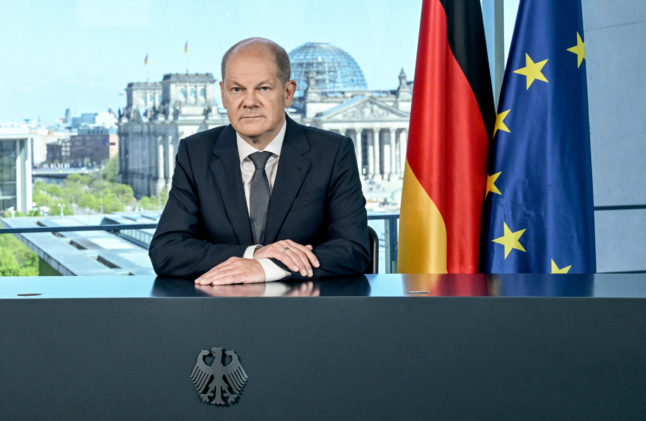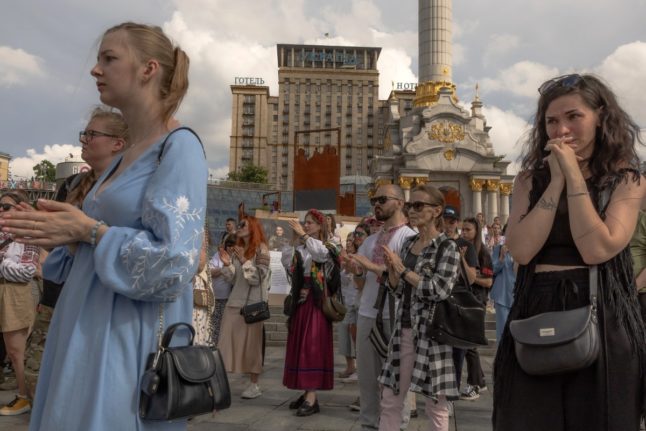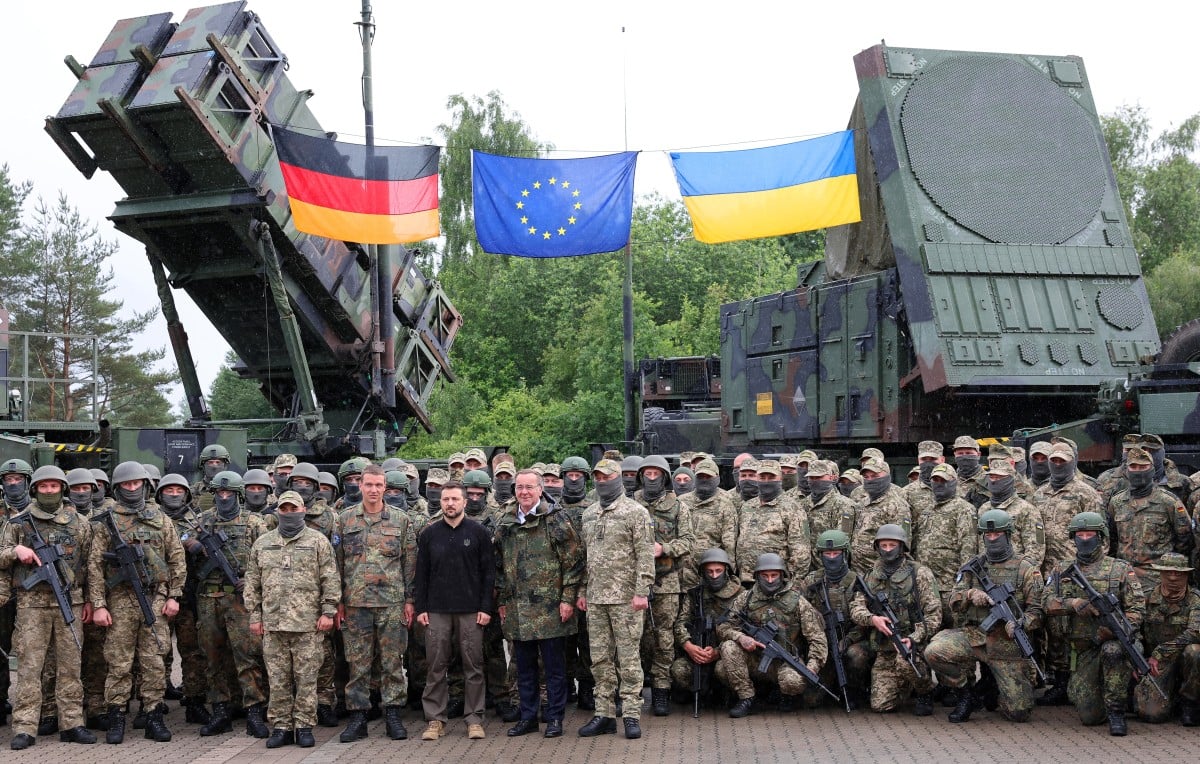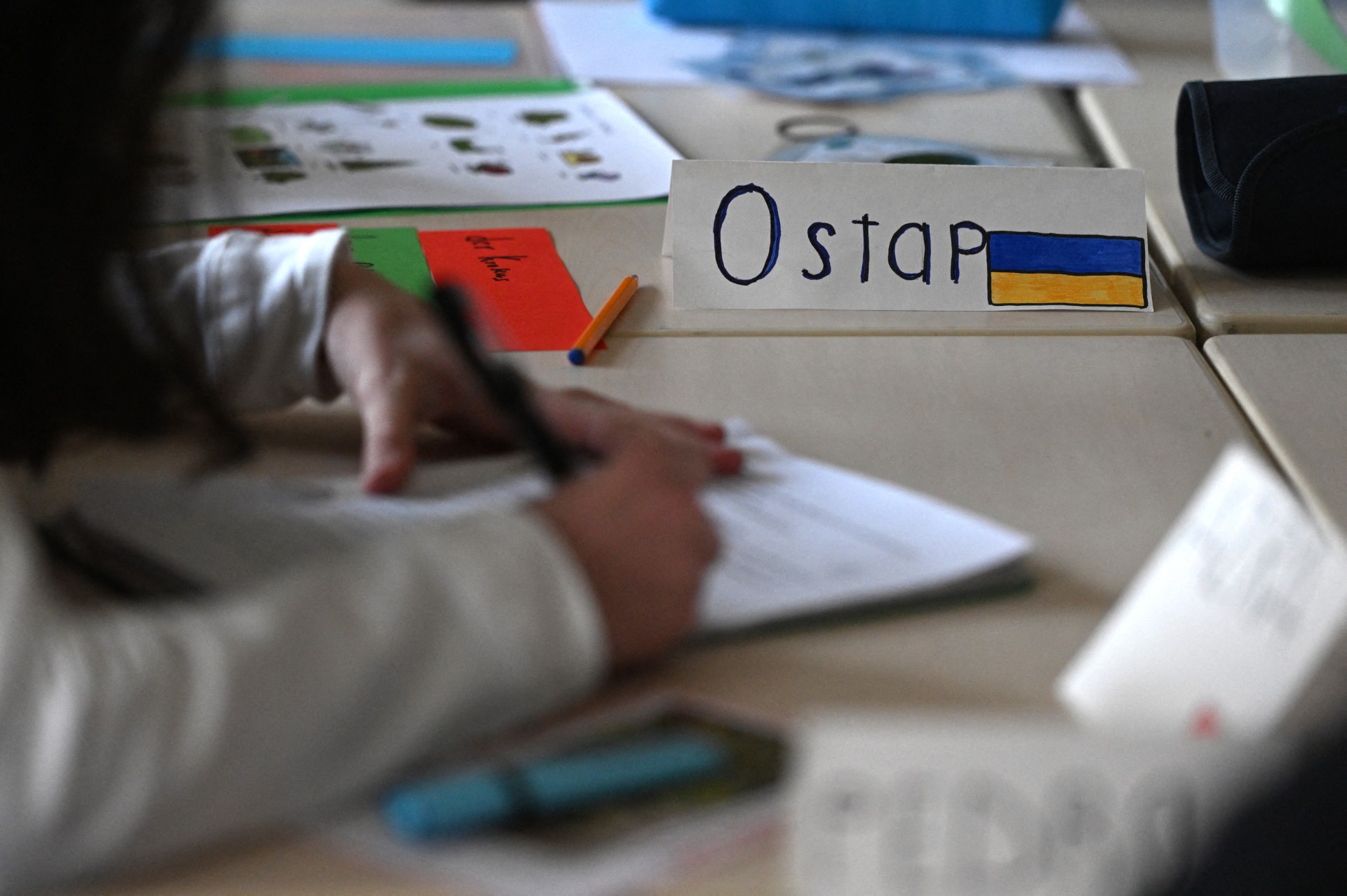During a speech televised on Sunday evening to mark the 77th anniversary of the end of World War II in Europe, Scholz spoke of German responsibility, of remembrance and of help for Ukraine.
The Chancellor said that it was “all the more painful” to witness the war on Ukraine after the German atrocities of WWII, and to see how “brute force is again breaking the law, in the middle of Europe, how Russia’s army is killing men, women and children in Ukraine, leaving cities in ruins, even attacking those fleeing”.
But Scholz said he was convinced that Russian President Vladimir Putin would not win the war, which started on February 24th.
“Ukraine will prevail,” he said. “Freedom and security will win, just as freedom and security triumphed over servitude, violence and dictatorship 77 years ago.”
Scholz said the country has along with allies imposed unprecedented sanctions against Moscow, delivered weapons to Ukraine, and offered refuge to Ukrainians.
“At the same time, we won’t simply do everything that one or the other demands,” he said.
“Because I swore in my oath when taking office that I would prevent Germans from suffering any harm.”
Address by Chancellor Scholz to mark 8 May:
"Freedom and security will win the day – just as freedom and security triumphed over oppression, violence and dictatorship 77 years ago.
Doing everything in our power to bring this about – that is what “Never again” means today." pic.twitter.com/He0Y6VNcNs— German Embassy London (@GermanEmbassy) May 9, 2022
Scholz stressed that Germany’s response will always be coordinated with Western allies. He also added that Berlin “will not undertake anything that will hurt ourselves and our partners more than Russia”.
Scholz did not spell out what his government would not agree to, but he has been under pressure for what critics say are delayed decisions on sending heavy weapons to Ukraine.
READ ALSO: German Chancellor defends Ukraine policies
The speech, which was released in writing ahead of Scholz’s TV appearance, was slammed by Germany’s best-selling newspaper Bild, who called it a “procrastination speech”.
Germany has also said it was unable to agree to a complete gas embargo, given its reliance on Russian supplies, and calls have been growing for the chancellor to personally visit Kyiv in a show of support.
READ ALSO: Zelensky invites Germany’s Scholz and Steinmeier to Kyiv





 Please whitelist us to continue reading.
Please whitelist us to continue reading.
Member comments